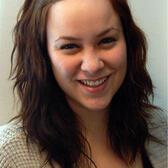Eating disorders and Orthodoxy
I’ve never been particularly offended by the various cultural stereotypes of Jewish women that portray us being zaftig, food-loving mamalehs-in-the-making; as someone who falls perfectly within the parameters of this description, I tend to favor anything that lends legitimacy to my, uh, lovely lady lumps. But when it comes to Jewish women’s body image, there may be a darker reality lurking out of the sight of stereotypes.
Various Jewish outlets, including Jewesses with Attitude and The Forward, have in the past given play to stories about eating disorders within the Jewish community. Last week, however, may mark the first time mainstream media has broached the topic. The Washington Post’s “Eating disorders a problem among Orthodox Jews” reports that in 1996, nearly 1 in 19 ultra-Orthodox girls in Brooklyn had a diagnosed eating disorder – a rate that was, at the time, about 50 percent higher than the national average.
Because Orthodox Judaism enforces a litany of rigid food rules and restrictions – no mixing meat and dairy, a bevy of off-limits foods and brands – Orthodox women who keep strict kosher learn from an early age to resist temptation and adhere to stringent meal guidelines. For the sake of religiosity, they become experts at saying no to foods that might otherwise appeal to them – and in some cases, such as on Yom Kippur and Tisha B’av, to saying no to food, period.
For a great many women, keeping kosher causes no disordered eating. For others, though, Orthodoxy offers the perfect guise under which to develop anorexia, bulimia, binge eating and other serious disorders. Recognizing the high potential for trouble within the community, the Orthodox Union has undertaken outreach initiatives to educate Jewish girls and young women about the dangers of eating disorders and to help cultivate a life of positive body image. “Hungry to Be Heard: Eating Disorders in the Orthodox Jewish Community” is a 40-minute documentary designed to highlight the problem and educate the community on prevention and treatment.
The OU isn’t alone in its outreach to Jewish women on the subject of eating disorders:
- The Renfrew Center, a clinic for women with eating disorders, last year launched treatment tracks for observant Jewish women at its Philadelphia and New York City treatment centers.
- Relief Resources, a non-profit mental heath organization for members of the Jewish community, opened a helpline that individuals struggling with eating disorders can call (anonymously or otherwise) for guidance, assistance and referrals to appropriate mental health professionals.
- The Hadassah Foundation funded the creation of “Bishvili: For Me,” an interactive curriculum to help bolster Jewish girls’ self-esteem designed to be used by summer camps, religious schools and in other Jewish communal settings.
- The Reconstructionist Rabbinical College and the KOLOT Center for Jewish Women and Gender Studies together established Rosh Hodesh: It's a Girl Thing, an initiative that teaches teen and preteen girls positive body imagery and other Jewish values that relate to their lives.
Are these steps from within the community enough? As it is, societal pressures from the secular world are plenty influential – on every magazine page, billboard and movie poster, we see images of impossibly thin, beautiful women. And a 2008 survey by SELF Magazine and the University of North Carolina at Chapel Hill found that 65 percent of American women display signs of disordered eating and 1 in 10 suffers from a more severe eating disorder, such as anorexia or bulimia. In the Jewish community, where food represents both a celebrated cultural joy and an important religious restriction, it’s not difficult to see how Jewish women could be even more susceptible to eating disorders than the average American woman.
The ancient Jewish philosopher Philo is quoted as saying, “The body is the soul's house. Shouldn't we therefore take care of our house so that it will not fall into ruin?” The answer, of course, is that we should, and we should teach our children to do the same. The better question is: But how?






